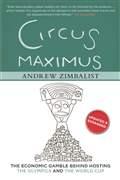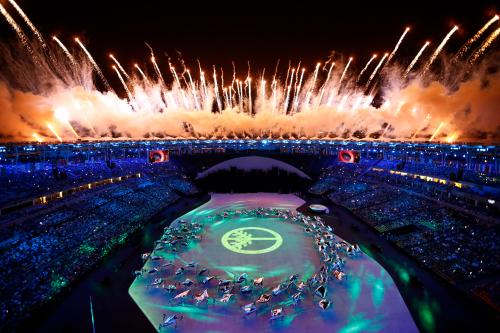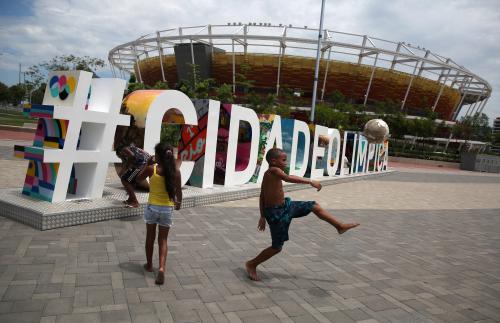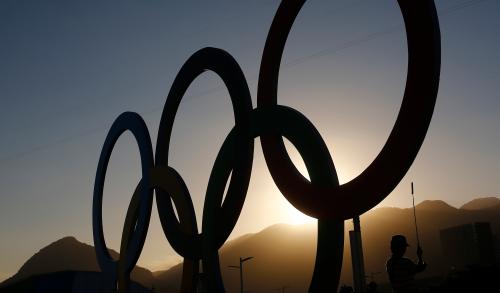The lead up to the 2016 Olympics in Rio de Janeiro, Brazil has been tumultuous for the city. Rio invested billions of dollars to host the Summer Games, yet reports state that the infrastructure will not be ready in time; athletes and attendees are opting out for fear of the Zika virus; and the athletes’ village may be uninhabitable.
Andrew Zimbalist, the Robert A. Woods Professor of Economics at Smith College, and author of “Circus Maximus: The Economic Gamble Behind Hosting the Olympics and the World Cup,” answered some questions about Rio’s investment in hosting the Olympics and whether, in the end, the benefits will outweigh the costs, risks, and controversies.
 Q: The Rio Olympics will cost over $15 billion. In your book “Circus Maximus,” you describe this kind of investment as an economic gamble. Will the gamble pay off for Rio?
Q: The Rio Olympics will cost over $15 billion. In your book “Circus Maximus,” you describe this kind of investment as an economic gamble. Will the gamble pay off for Rio?
No. With costs in excess of $15 billion and revenues of approximately $4 billion, the financial balance is hardly favorable. Boosters will assert that there are long-term benefits in the form of increased tourism, trade and foreign investment, but scholarly research does not sustain these claims.
Indeed, the flood of bad news about corruption, recession, inequality, violence and virulence can only damage Rio’s tourism industry going forward.
Q: Apart from the negative financial consequences, what are some of the other outcomes of hosting the 2016 Games?
In order to make room for Olympic venues and transportation routes, over 77,000 shantytown residents have been evicted, a nature reserve in Barra da Tijuca has been desecrated, and government finances have been thrown into disarray. Teachers have been on strike for months, customs workers, police, and other public servants are threatening to strike. The state governor of Rio declared the situation to calamitous.
However sanitized the games may appear on TV, the hard reality in Rio is utterly tragic.
Zimbalist discusses more from his book, which was named one of the Best Books of 2015 by The Economist, in an interview on the Brookings Cafeteria Podcast.
The Brookings Institution is committed to quality, independence, and impact.
We are supported by a diverse array of funders. In line with our values and policies, each Brookings publication represents the sole views of its author(s).







Commentary
Rio’s olympic economic gamble in the Summer Games
July 27, 2016